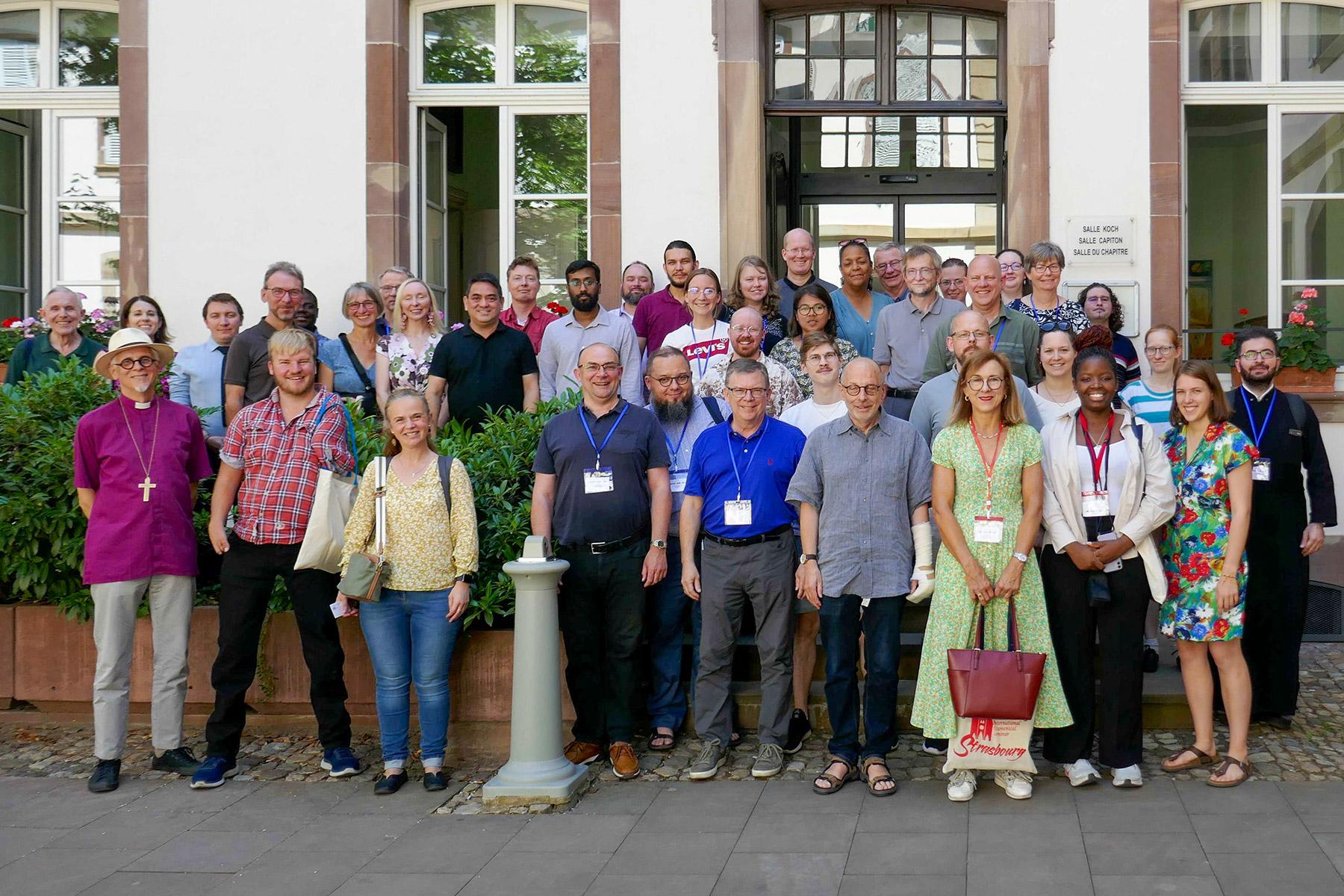Strasbourg: searching for a common vocabulary
What does ‘communion’ mean to people from different Christian backgrounds and what model of unity is the ecumenical movement pursuing? These questions were under the spotlight at a summer course at Strasbourg’s Ecumenical Institute

Participants, with Hansbauer front row, second from left, at the 2023 summer course of the Institute for Ecumenical Research in Strasbourg. Photo: Institute for Ecumenical Research, Strasbourg
Reflections from one of the participants in a summer course at the Strasbourg Institute for Ecumenical Research
As 30 participants from 20 different countries gathered in Strasbourg, it was a meeting of new people and a surprising reunion with some well-known faces for me. A full week of speaking mostly English, it also meant, for me, sometimes changing between German, English and French within a couple of minutes. Some terms like “communion” or “consecration” have different aspects of meaning in the English and German languages, so “Communion of Churches” (the title of the course) also meant the need to find a common vocabulary.
But that didn’t have any negative effects on the communion between the participants: during interesting conversations in the beautiful yard beneath the tower of the St. Thomas church, at the table while having meals, or on the trip around the region of Alsace, many amicable encounters took place. Almost all participants had studied theology, but they were of very different ages and backgrounds, so it was a diverse and dynamic group. Many of the participants have been engaged already for years in ecumenism, while for others it was one of their very first opportunities to experience an ecumenical context.
Taking ecumenism seriously
The majority of the participants came from Protestant denominations, with fewer coming from the Roman-Catholic church, the Orthodox churches and the Pentecostal churches. I think it would be important and enriching to enter deeper into dialogue with these churches, even if they seem to be very different from the Protestant denominations. This is what it means to me to take ecumenism seriously: looking for the things that all Christian churches have in common. But I also realized that even inter-Protestant ecumenism, that seems easier at first glance, can be quite challenging, as the presentations about the Leuenberg and the Porvoo Agreements clearly showed.
There were only a few participants from a Pentecostal background and on the level of global ecumenism, they have often been underrepresented too. To include more Christians from non-traditional denominations and from the global South, the “Global Christian Forum” has been founded. It was represented at the seminar and it was very interesting for me to get to know this way of ecumenism that might be quite different from the established one.
‘We are one’ moments
For me, this course was very interesting and enriching. Some of the information presented was already known to me through my studies, but a lot of things were new too. Especially good was that every family of denominations was presented by one person belonging to it, so the presentations gave a special insight and often led to interesting panel discussions. Because of the very diverse background of participants, with church leaders alongside university students, the atmosphere was very open and friendly: conflicts or strong disagreements did not appear. I hope that these personal contacts I made during the course will last for a long time and will be fruitful for both sides. I hope that I can take part in this course again in the coming years.
What made the “Communion of churches” most visible for me during this course was the church service on the last day: People from all parts of the world were singing and praying – each in his or her own language. When we gathered around the altar to receive communion, it was one of these special “We are one” moments too.





